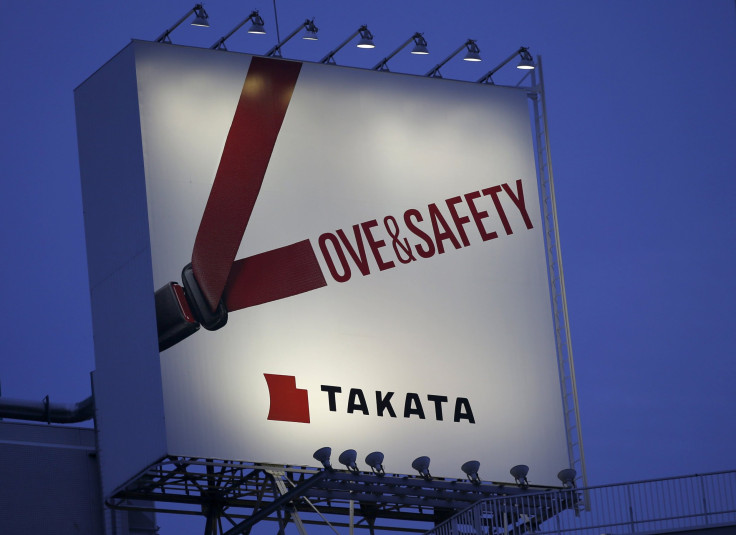Takata Found Airbag Problems 4 Years Before Official Testing, Told Workers To Delete Test Results: Report

Takata Corp., the Japanese auto parts maker whose faulty air bags have triggered recalls of several million vehicles worldwide, had conducted secret tests on 50 of its air bags procured from scrap yards and told workers to delete the test results rather than inform federal authorities of cracks in the air bag inflators, according to a New York Times report. The tests were conducted after an accident in 2004 when an inflator fixed on a Honda Accord exploded, ejecting metal fragments and injuring the driver.
Workers from Takata Corp. conducted the tests after work hours and on weekends at a Michigan plant, the Times reported Thursday, adding that these tests were done four years before the company first admitted in regulatory filings that it had tested the problem. The later tests conducted by the company resulted in the first recall of vehicles, in November 2008, because of a risk of air bag ruptures. Automakers have recalled more than 14 million vehicles globally because of this particular risk and four deaths have so far been linked to it.
“All the testing was hush-hush,” a former employee said, according to the Times, adding: “Then one day, it was, ‘Pack it all up, shut the whole thing down.’ It was not standard procedure.”
According to the Times, which cited a senior employee, Takata lab workers were instructed to destroy all data, including video and computer backups, related to the tests. The company also reportedly instructed its employees to disassemble and dispose off inflaters and prototypes of fixes. The secret tests were being supervised by Al Bernat, the former vice president for engineering for Takata, although employees stated they did not know under whose authority Bernat was operating, the Times reported.
An employee also reportedly said that the results of the three-month long tests were so startling that the company began preparing for a recall and having its engineers design methods to fix the problem. The secret tests for the air bags were conducted at Takata’s plant in Michigan even as workers raised concerns that the bags being delivered to manufacturers were wet or damaged due to mishaps during transportation.
Earlier in the 2000s, closed-circuit camera footage also reportedly showed forklifts dropping stacks of air bag units, but the dropped bags were not checked properly for damage, the Times reported, adding that, in later years, the facility’s managers changed the rules to become more focused on quality.
The National Highway Traffic Safety Administration, or NHTSA, had investigated the defective air bags for a brief period earlier and ended its inquiry in 2010. The investigation was later reopened by federal authorities while a House committee asked the Government Accountability Office to conduct its own investigation.
“Claims such as these have raised additional concerns about Takata’s handling of air bag issues and are one of the reasons we’re compelling them to produce documents and answer questions, under oath,” NHTSA said, according to the Times.
Honda Motor Co. announced Thursday that it will recall an undisclosed number of American cars, for model years 2001-2006, to replace air bags manufactured by Takata, whose shares fell nearly 8 percent on Friday, following the release of the Times report.
© Copyright IBTimes 2024. All rights reserved.






















